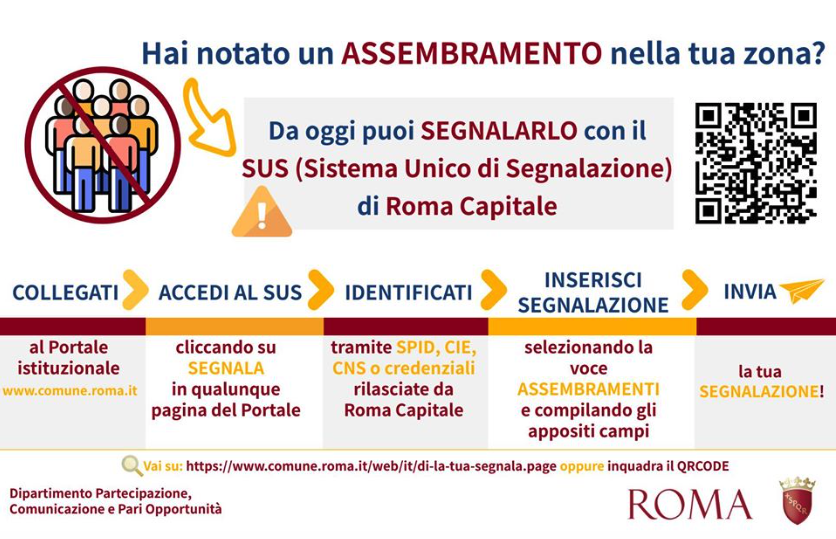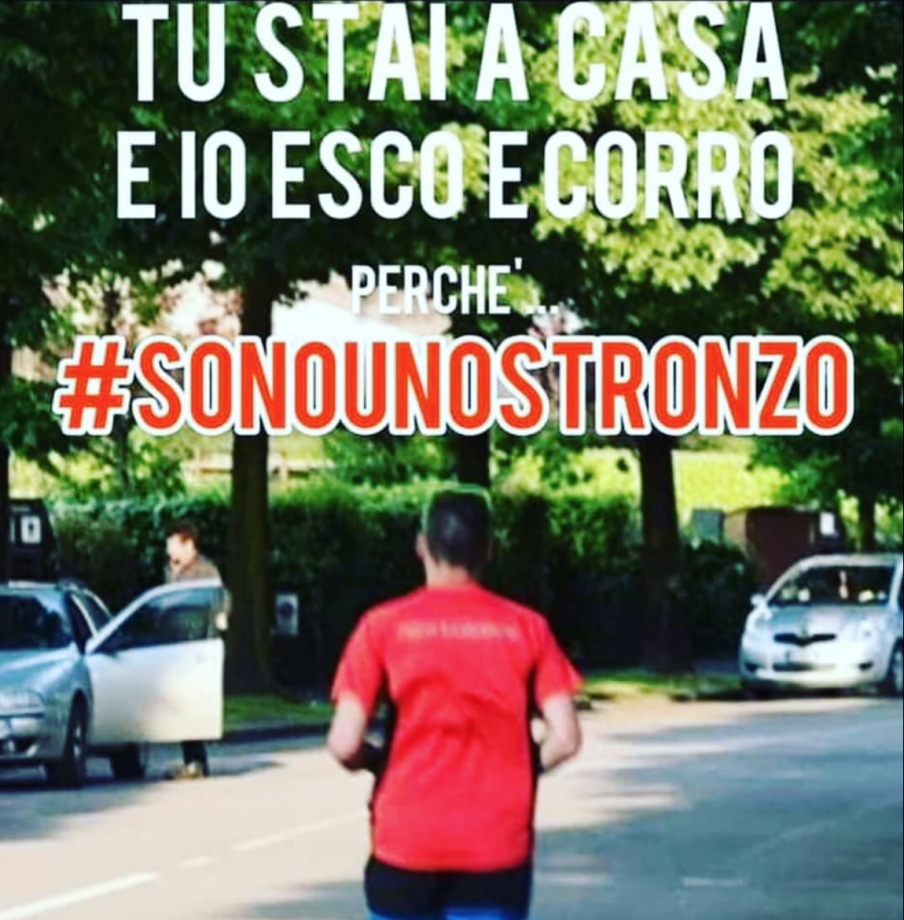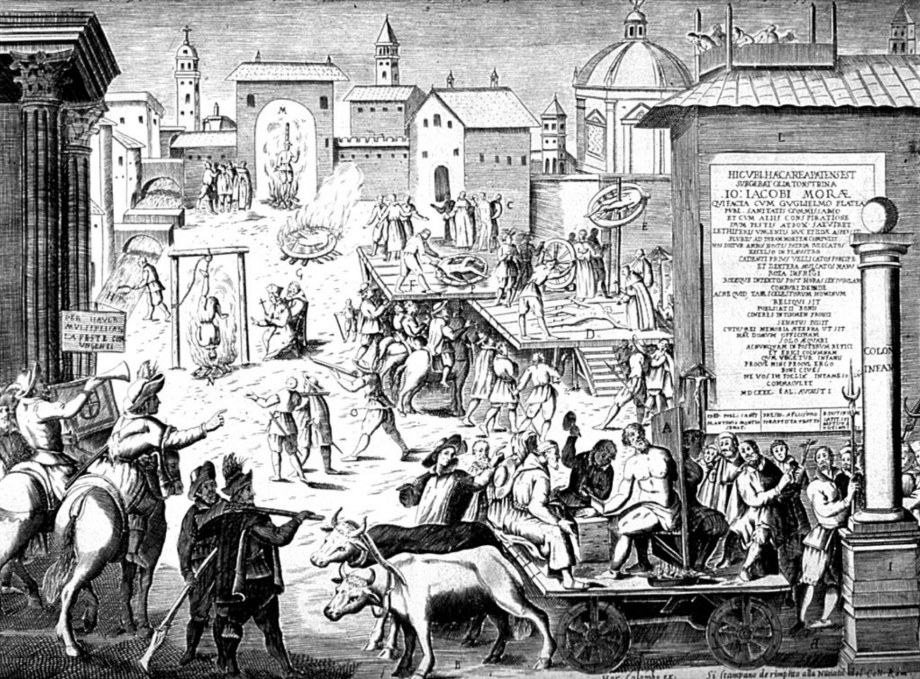Virological Witch Hunts
Coronavirus and Social Control under Quarantine in Bergamo, Italy
Compilations of video clips of Italian mayors berating citizens breaking quarantine to walk dogs, jog, or play ping pong have become something of a ‘viral’ sensation both in Italy and globally. The clips are often amusing, featuring politicians accusing their constituents of vanity, incontinence, and other assorted sins. As anthropologists interested in the politics of accusation, these small-scale disputes allow us to think through the sorts of political horizons that the novel Coronavirus is bringing into being. As the virus spreads, we seek to track the sorts of accusations that spread with it as they provoke what we call virological witch hunts.
Unlike the episodes of public blaming and shaming some political figures have promoted through national media, virological witch hunts are small-scale, bottom-up, intimate, and usually amplified through local social networks. We link them to the phenomenon of the untori in XVI-XVII century Lombardy, another bottom-up surge of accusations against those believed to be spreading disease that authorities had to deal with. Relying on social media, we have been reaching out to quarantined residents of the province of Bergamo, in the Lombardy region who have been publicly shamed for perceived transgressions in the midst of the quarantine. The responses offer insight into how the pandemic has precipitated what Massimo, one of our interlocutors, has termed a “collective, hysterical version of preexisting individual patterns of blaming and shaming”.
#IStayHome (and so should you)
The Coronavirus is a human tragedy of untold proportions and the worst is certainly yet to come. Its combination of virulence and lethality (initially downplayed by politicians and media commentators) has already caused immense suffering both through its death toll and the economic impact of societies’ desperate attempts to stave off the collapse of their medical infrastructure through strict quarantine procedures. Examples of self-sacrifice, compassion, and generosity, have been numerous, from fundraising initiatives and donation drives by businesses, companies and citizens to volunteers running errands for the elderly and the sick in almost every Italian city.
However, other, more sinister energies and passions have also manifested themselves in the virus’ wake. Early reports indicate that people in many parts of the world have embraced their role as guardians of public health with alacrity not only by self-isolating but, in certain cases, by seeking to help the authorities ensure that their neighbors do as well.

Figure 1: Invitation of the municipality of Rome to report gatherings, https://www.facebook.com/RomaCapitaleOfficialPage/photos/a.398023683598544/2953367051397515/?type=3&theater, last accessed on 18 April 2020.
As in other countries, there has been a surge in hate crimes in Italy targeting those perceived as Asian or Chinese – no doubt exacerbated by the attempts of politicians and the media to blame the outbreak on “China”. However, blame games have quickly expanded to include many others. The local press in Bergamo has reported on numerous cases such as Andrea’s, who was riding a bike to reach his office for a work-related emergency. While carabinieri (police) checking his papers were polite and understanding, he claimed the “I am going to work” sheet attached on his back did not stop drivers from honking, swearing and insulting him. The incongruity of people who are out and about scolding others for doing the same (even when those being scolded clearly have essential jobs to do) merely accentuates more generalized patterns of accusation and counter-accusation that seem to typify these encounters. Sometimes, those so targeted have struck back, even reacting violently to neighbors’ scolding.
Runner smashing the car of a neighbor who told him he should remain home
While there is no question that social distancing is essential right now, we also believe that the dynamics of its implementation require serious reflection. As one of the first countries hit by the virus, Italy has offered a model of what other countries can expect as the pandemic progresses, and, if Italy is any guide, we suspect that the spread of accusations will follow in the disease’s wake, likely keying into preexisting, culturally specific social antagonisms between the young and the old, the sporty and the sedentary, and the ‘productive’ and the ‘unproductive’. We decided to focus on the province of Bergamo because it is the Italian area hardest hit by Coronavirus, and is currently considered the major hotspot of the pandemic globally. While official data for March reported 2060 victims of the virus, a comparison of year-on-year mortality figures in just half of the province’s municipalities has estimated the death toll for March to be at least 4,500, since so many of those suffering from the virus and other ailments are turned away from hospitals or simply opt not to go.
In Italy, the government initially reacted by declaring a state of emergency and banning flights to and from China after two Chinese tourists tested positive for Covid-19 on the 31 January. The first quarantine was imposed between 21 and 23 February on 50,000 residents of a few municipalities in Southern Lombardy and the Veneto region. Then, between 25 February and 7 March, schools, university and public venues were closed, public events cancelled and restrictions to the movement of citizens were applied to an increasingly larger part of the country. On 11 March, the Presidential decree #IoRestoaCasa (I Stay Home) was issued, mandating the closure of restaurants, shops and cafes and forbidding gatherings in all public places. Finally, on 21 March the most stringent measures were announced, forbidding all activities unrelated to the health and food supply chains – including the movement of non-essential workers. All along, quarantine measures have been stricter and more stringently observed in Lombardy than elsewhere because of the application of region-specific decrees motivated by the high death toll.
Although it was estimated in mid-March that 96 percent of the Italian population supports and complies with the measures, there has been no shortage of conflict over what quarantine measures actually mean in practice. We have had a number of responses from people who reported having either experienced or witnessed various episodes of intolerance, surveillance and verbal attacks, such as flatmates being insulted for playing cards in the shared garden of their apartment building, or neighbors policing the number of times dog owners were walking their dogs. Several Facebook groups have even been opened for people to report those who break quarantine rules (see, e.g. https://www.facebook.com/groups/680863699390418/?ref=br_rs, last accessed on 18 April 2020)
Shifting targets of blame
Massimo, a medical doctor working in the field of mental health in Calvenzano, a village of about 4,000 inhabitants in the fertile plain between Bergamo and Milan, recounts taking a walk with his 12 years old daughter and his dog. “I was about 100 meters from my house, in a street closed to traffic and surrounded by fields, and nobody was around. We passed beside a lawn delimited by hedges and suddenly I heard a woman screaming: “Go home, you are disgusting!”. I tried to keep calm and said to my daughter, who felt humiliated and was about to cry, that oftentimes people hiding behind bushes to insult others have more issues than daddy’s patients. I think she understood”.
Over time, the increasingly stringent decrees and norms that initially targeted runners (sometimes motivated by the need to avoid accidents and hospital admissions) came to single out other groups. People walking dogs and parents walking with children became the new targets of public shaming and insults, with many scared parents reporting that they have been on the receiving end of threats and public shaming on social networks. Silvia, a mother of a three-year-old, expresses her concerns as follows:
“Mothers with children are the new runners. I think I will be reported by some zealous citizen for stepping out of my door and standing on the sidewalk all alone. Yet my neighbour is still working, sharing a small office with eight other colleagues. They asked to be provided with surgical masks but the employer refused. What is riskier, people still going to work without personal protective equipment or someone doing a short walk around home with a child after checking from their windows that nobody is around? This is not the centre of Milan, I live nearby the fields, why shouldn’t I walk 100 meters with my kid? There is this idea that people won’t have common sense and so all activities must be forbidden…”.

Figure 2: This image of a runner has circulated through social networks. The caption reads “You stay home and I go out and run because #Iamanasshole”, Source: https://bit.ly/2RE7MBr, last accessed on 18 April 2020.
What is especially intriguing here is the interplay of accusation and counter-accusation amongst those deemed to be engaging in more or less “productive” activities. What began as a move to delegitimize leisure activities has over time begun to cross over into delegitimizing more arguably reproductive tasks: caring for children and comforting them by allowing them outside, or caring for one’s health by exercising. In turn, many counter that those supposedly engaged in essential, productive efforts are actually not–and that their employers are risking public health merely to line their own pockets. Productive and reproductive labor become dichotomized and opposed within a context of mutual suspicion.
Margherita, a woman in her 30s who has been shouted at by a male car driver while walking her dog, reflects that
“Normally nobody says anything when they see others doing illegal things. Now, they are all checking out on people from their balconies or cars. I was not breaking any rule! The mantra is “stay home”. It is the answer to everything. ‘Can I go out to walk my dog, or to the pharmacy?’ ‘No, stay home’. Even when that activity is allowed. People pointing their finger from cars and balconies do so to avoid acknowledging their own responsibilities: it is much easier to say that Coronavirus is spreading because of runners than admitting that they go to the supermarket every day. This increasing citizens’ control is not about common safety: it is selfishness […] they do not blame the cuts to the health service’s budget, nor how their choices about food and mobility may have had an influence on this pandemic. They prefer to blame a lady walking her dog, or someone who does a short walk because he or she suffers from depression and really needs that”.
Here, we see a range of defenses for individual behavior paired with counter-accusations of avoidance, blame-shifting and the same sort of violation of the spirit of the rules to which the one initially accused has been subject. And not without reason: it is hard not to see how new accommodations provide ample cover for all sorts of potential motives.
Indeed, the sorts of sacrifices now being demanded of individuals could clearly lead to all manner of resentments and those resentments will need to be channeled. This view was shared by Sara (not her real name), who has been insulted from a balcony while walking:
“A woman called me a murderer, and said I was spreading the virus. When I replied that the rules were still allowing it, she said that I should be ashamed of myself and she was going to call the police. This is all very worrying, the situation is going out of control. As if people needed to unload their isolation-induced frustration through scapegoating”.
Virological witch hunts, untori and social surveillance

Figure 3: Horatio Colombo, Square of justice in Milan during the plague of 1630, showing the torture and execution of G. Piazza and G.G. Mora, who were accused of increasing the plague, 1630 ca.
Such a virological witch hunt is reminiscent of the XVI-XVII century untori hunts that convulsed Milan. Untori or “anointers” were reputed to purposefully spread the plague by daubing infectious oils on doors. Popular accusations, mostly motivated by personal interests, rivalries or explained through political conspiracies, led to a number of trials and death sentences, mostly in Milan. Not unlike the anti-semitic figure of the ‘wandering Jew’ in European folklore, those so accused were scapegoated as being responsible for the whole communities’ ills. This new “untori hunt” has been denounced by some Italian commentators, who have countered that it serves as an alibi to explain the inability of those in power to stop the contagion – thus attributing underlying political motives just as they claim “hunters” do.
As Silvia noted above, many continue to work, often without proper protective equipment under dubious rationales. Likewise, as Margherita noted, the public health system has been suffering under decades of disinvestment, leaving it ill-equipped for the crisis. Yet, this has not stopped authorities, media, and even many citizens from laying the blame for the crisis at the feet of specific groups of untori. Amidst frustration for a massive unpreparedness and the imposition of prolonged quarantine measures, a worrying trend is emerging, with people channeling their frustrations by engaging in social surveillance targeting specific individuals or categories. While Covid-19 has brought humanity closer together in some ways (even amidst social distancing), the emerging pattern of punitive, reciprocal policing potentially elides more complex and troubling realities.
First submitted on April 5, 2020, revised version from April 20, 2020
Chiara Bresciani is a doctoral candidate at James Cook University and the University of Aarhus. Among her research interests is the role of moral economies, historicities and tradition in the study of social change.
Dr. Geoffrey Hughes is a lecturer in anthropology at the University of Exeter. He studies how new technologies for large-scale population management are creatively reappropriated in local contexts as they circulate globally.
Together with Dr. Megnaa Mehtta and Dr. Stuart Strange, they recently published a Special Issue entitled Envy and Greed: Ugly Emotions and the Politics of Accusation
#WitnessingCorona
This article was simultaneously published on the Blog Medical Anthropology. Witnessing Corona is a joint blog series by the Blog Medical Anthropology / Medizinethnologie, Curare: Journal of Medical Anthropology, the Global South Studies Center Cologne, and boasblogs.
References
Cohn, Samuel K. 2018. ‘Plague Spreaders’. Epidemics: Hate and Compassion from the Plague of Athens to AIDS. Oxford: Oxford University Press.
Comaroff, Jean and John L. Comaroff 1999. ‘Occult economies and the violence of abstraction: notes from the South African postcolony’. American Ethnologist 26(2): 279-303.
Hughes, Geoffrey, Megnaa Mehtta, Chiara Bresciani and Stuart Strange 2019. ‘Introduction: Ugly Emotions and the Politics of Accusation’. Cambridge Journal of Anthropology 37(2): 1-20.

































